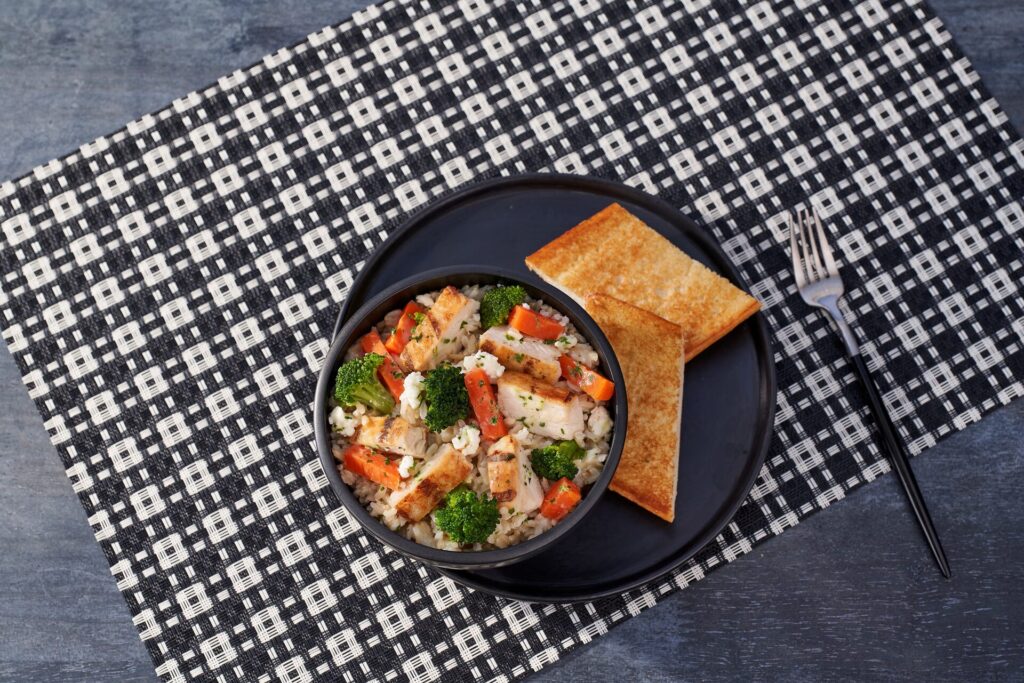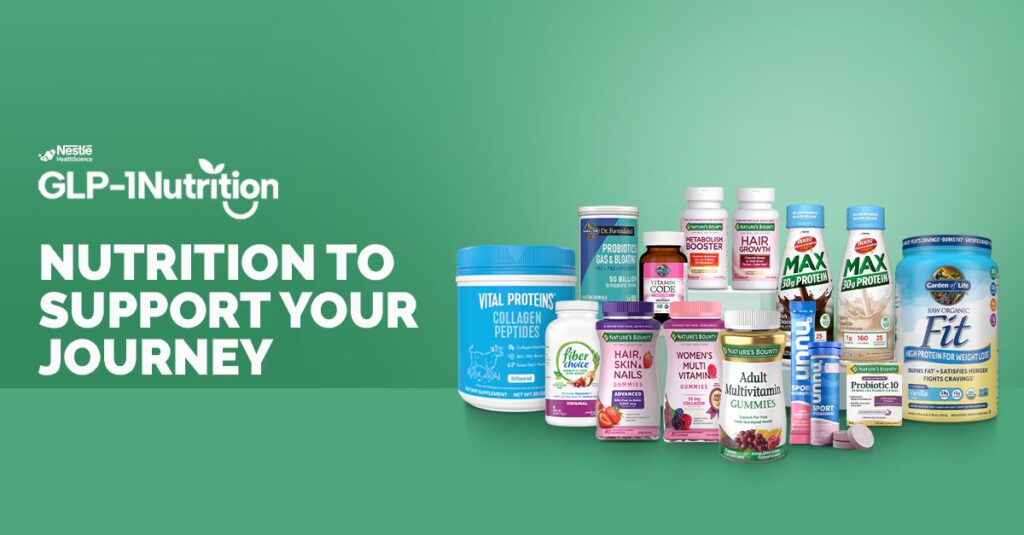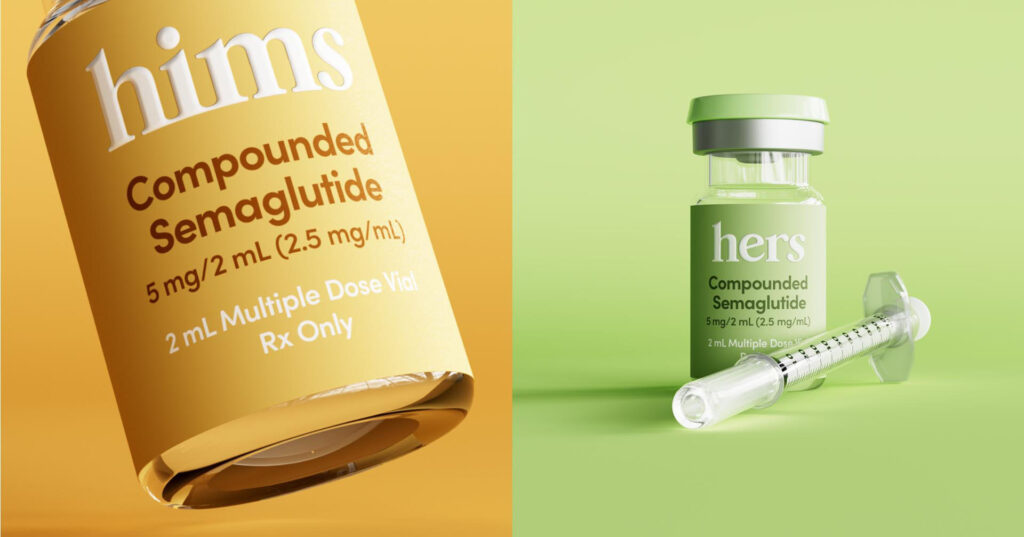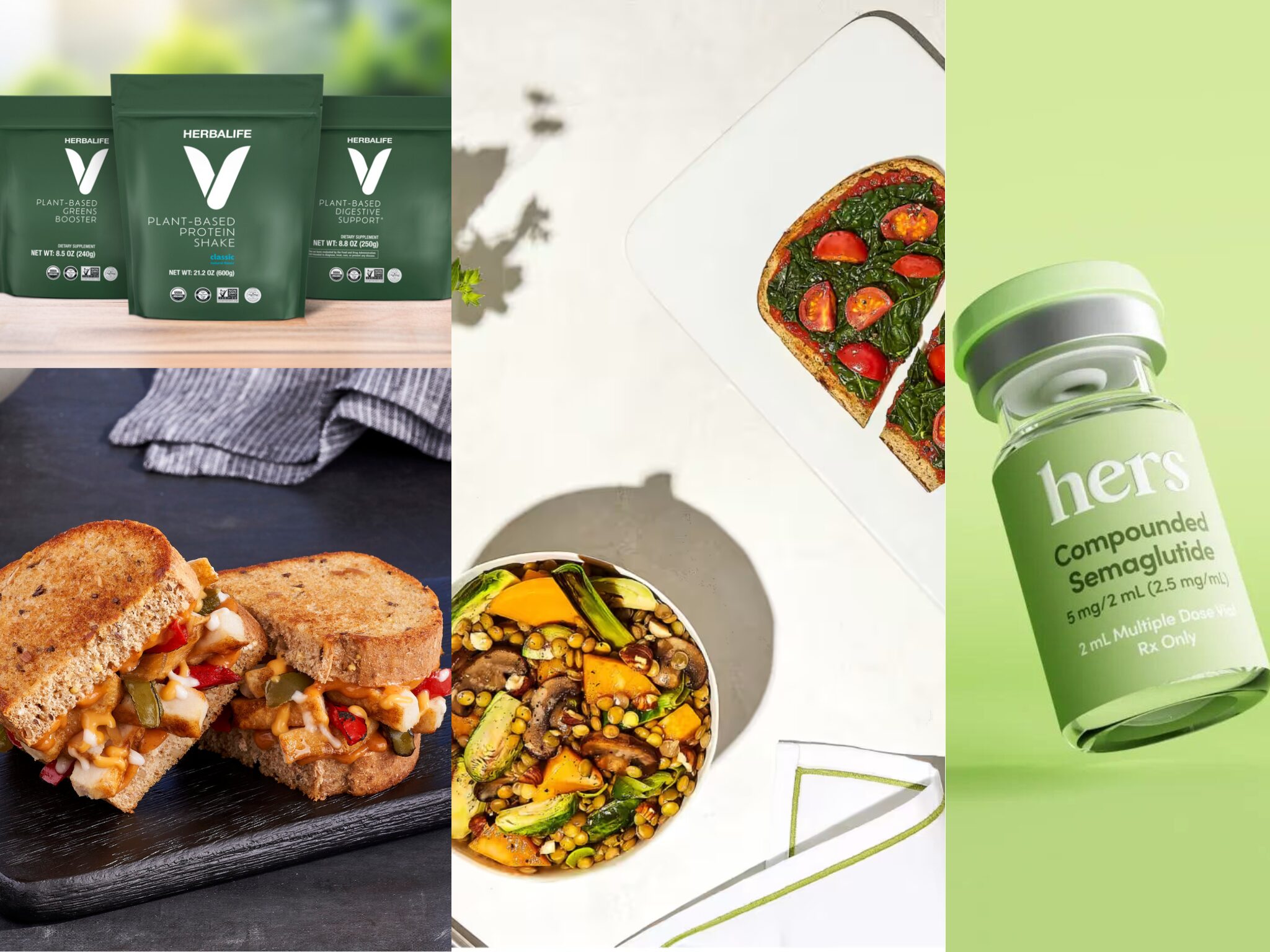As Big Food Feels the GLP-1 Effect, Nestlé Finally Takes On Ozempic
5 Mins Read
The world’s largest food company is responding to the most disruptive trend the industry has faced in years by offering products and services targeted to GLP-1 users.
If you can’t beat them, join them.
Nestlé might be a $105B conglomerate, but even it can’t escape the Ozempic Revolution™. With the GLP-1 trend changing the face of food as we know it, the largest food company in the world has made two major moves to combat the impact.
Here’s the thing: GLP-1 agonist drugs like Ozempic, Wegovy, Mounjaro and Zepbound aren’t going anywhere, but food industry sales are. Over 60% of Ozempic users are spending less on restaurants. People are buying fewer items in supermarkets, eating fewer carbs and less fat, drinking less coffee and sugar, and ditching fast food.
Now, one in eight Americans – that’s 30 million – have tried these weight loss drugs. And with Wegovy being approved by regulators in China this week, this number will only increase. After all, we’re talking about the world’s second-most populous state, second-largest economy, and a country with the highest number of overweight or obese people.
All of this to say, Big Pharma has become a thorn in the side of Big Food. While some startups have capitalised on the Ozempic boom with high-fibre, gut-friendly products, large food companies have bided their time.
Until now, that is.
Nestlé’s Vital Pursuit to serve GLP-1 users

Last month, Nestlé introduced a new brand aimed at GLP-1 users. Slated to go on shelves this year, the frozen Vital Pursuit line is made up of offerings like whole-grain bowls, protein pastas, sandwich melts, and pizzas, all priced at $4.99.
The cost is important: over half of GLP-1 users say these medications are difficult to afford, even with coupons and insurance. A monthly supply of Ozempic can cost nearly $1,000 before discounts or rebates.
The Vital Pursuit products are said to be high in protein, good sources of fibre, and contain essential nutrients. The 12-strong range is also “portion-aligned” to support weight loss drug users’ appetites, and includes gluten-free and air-fryer-friendly options.
“As the use of medications to support weight loss continues to rise, we see an opportunity to serve those consumers,” Nestlé North America CEO Steve Presley said. “We’re leveraging our deep understanding of consumers and nutritional science to stay ahead of the trends that are shaping consumer behaviours, and innovating across our portfolio to deliver products people will love.”
A dedicated website for GLP-1 advice and products

Vital Pursuit wasn’t a one-off move. This week, Nestlé showed how seriously it’s taking the Ozempic trend, with its Health Science unit launching a dedicated website to provide nutritional support for people on weight loss programmes, including GLP-1 medication users.
The platform, titled GLP-1Nutrition, offers a vast portfolio of health and medical nutrition advice, pharmaceutical therapies, and supplement products from its sub-brands The products and tools traverse the muscle preservation, gut health, micronutrient intake, hydration, skin and hair health, and weight rebound management verticals.
The website also offers expert nutrition insights and a community platform for people to share their experiences, alongside personalised dietary advice through a Nutrition Coach programme, and a product bundling service.
All of this is designed to “complement your weight loss journey – even after stopping it”, Nestlé says on the website, where consumers can find hair growth supplements from its Nature’s Bounty brand, electrolyte tablets from Nuun Sport, Glucose Control protein drinks from Boost, and collagen peptides from Vital Proteins.
“The launch of this new innovative tool marks an important step forward in the mission and focus of our business,” said Anna Mohl, CEO of Nestlé Health Science. “With this offering, we reaffirm our commitment to empowering healthier lives through targeted, personalized nutritional solutions.
Can Big Food and Big Pharma be friends?

While Nestlé is spearheading the food industry response, it isn’t the only company tackling the GLP-1 space. Meal kit maker Daily Harvest, for example, began offering a GLP-1 companion collection, with dishes like broccoli and white bean soup, dragonfruit and lychee smoothie, and bean and cabbage bowl.
This was in response to “relatively slow” sales, according to Daily Harvest CEO Ricky Silver, though he outlined that the company won’t be aggressively pushing sales of these kits. “We definitely see it as an opportunity (but) not something we need to drastically pivot our focus toward,” he told Reuters. “Our food is already foundationally good for people taking these drugs.”
Herbalife, meanwhile, began selling some of its most popular shake mixes and fibre supplements in bundles aimed at GLP-1 medication users. And it isn’t shy about the target market. One Facebook post reads: “Using a GLP-1 weight-loss drug? Support your nutritional needs by using Herbalife’s GLP-1 Companion Pack.”
Then there’s Conagra Brands – the company behind brands like Birds Eye, Gardein, Chef Boyardee and Mrs. Butterworth’s – which said it is now selling more products catering to people on weight-loss drugs. Sales of its frozen meals have increased by 8% among GLP-1 users, while its high-protein meat snacks and low-calorie, high-fibre popcorn also meet these consumers’ needs.
This month, Kroger’s health division rejigged its weight management programme to offer patients access to drugs like Wegovy and Zepbound. Also in retail, supplement seller GNC has introduced a nutritional support section for GLP-1 users, selling protein powders and fibre products.
Telehealth platform Hims & Hers has teamed up with a drug manufacturer to produce generic, low-cost versions of Ozempic and Wegovy, which contain the same active ingredient (semaglutide) as the market-leading drugs, but circumvent the frequent shortages and sky-high prices.
And finally, other industry giants like Unilever and Danone are also keeping an eye on this space. “We have a very large range of protein yoghurts, which are flying off the shelf,” Juergen Esser, CFO and deputy CEO at Danone, told Bloomberg this week. “I think those products are attractive to both consumers who are under the treatment of GLP-1 or who just wish to manage their weight or wellbeing.”
GLP-1 agonist drugs represent a fast-moving industry that could see sales hit $150B in the early 2030s. Which food company will be next to aim for a slice?



